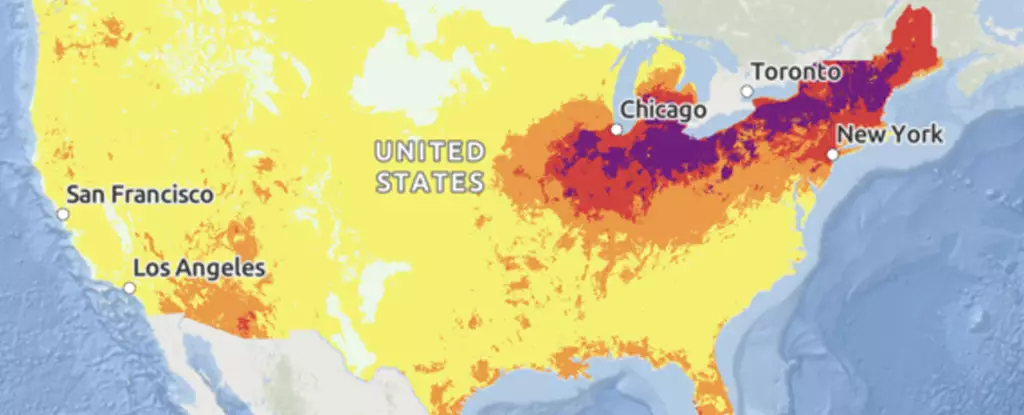More than 260 million people in the northeastern US are bracing themselves for an intense heatwave, set to break records and test their resilience against challenging temperatures. According to the National Weather Service (NWS), this heatwave is predicted to be one of the longest and most severe in decades for certain regions. A heat dome, characterized by high pressure atmospheric systems trapping warm air, is expected to move eastwards from the Great Lakes towards New England, bringing scorching temperatures of up to 41 °C (105 °F).
The persistent heat trap created by the heat dome may lead to drought conditions in some areas, impacting both human health and the environment. Cities in states like New York, Massachusetts, and Pennsylvania face extreme risk, particularly for vulnerable populations such as children, the elderly, and pregnant individuals. The urban heat island effect further exacerbates the situation, making cities hotter due to heat-retaining materials and a lack of cooling vegetation.
Amidst rising temperatures, it is crucial for individuals to take proactive measures to protect themselves and their loved ones. Staying indoors whenever possible, especially during peak heat hours, is advised. For those who need to go outside, staying hydrated and taking frequent rest breaks are essential. Look out for signs of heat stress in yourself and others, such as lethargy, and be sure to check in on vulnerable individuals regularly.
Despite being preventable, heat-related deaths are a leading cause of weather-related fatalities in the US. As climate change worsens, heatwaves are becoming more frequent, intense, and prolonged. The current heatwave serves as a stark reminder of the dangers posed by extreme heat events, which also increase the risk of wildfires in affected regions.
The impending heatwave in the northeastern US is a pressing concern that demands proactive action from individuals, communities, and policymakers alike. By understanding the risks, implementing necessary precautions, and raising awareness about the impact of heatwaves, we can better prepare for and mitigate the effects of such extreme weather events. Stay safe, stay informed, and take the necessary steps to protect yourself and those around you during this challenging time.


Leave a Reply